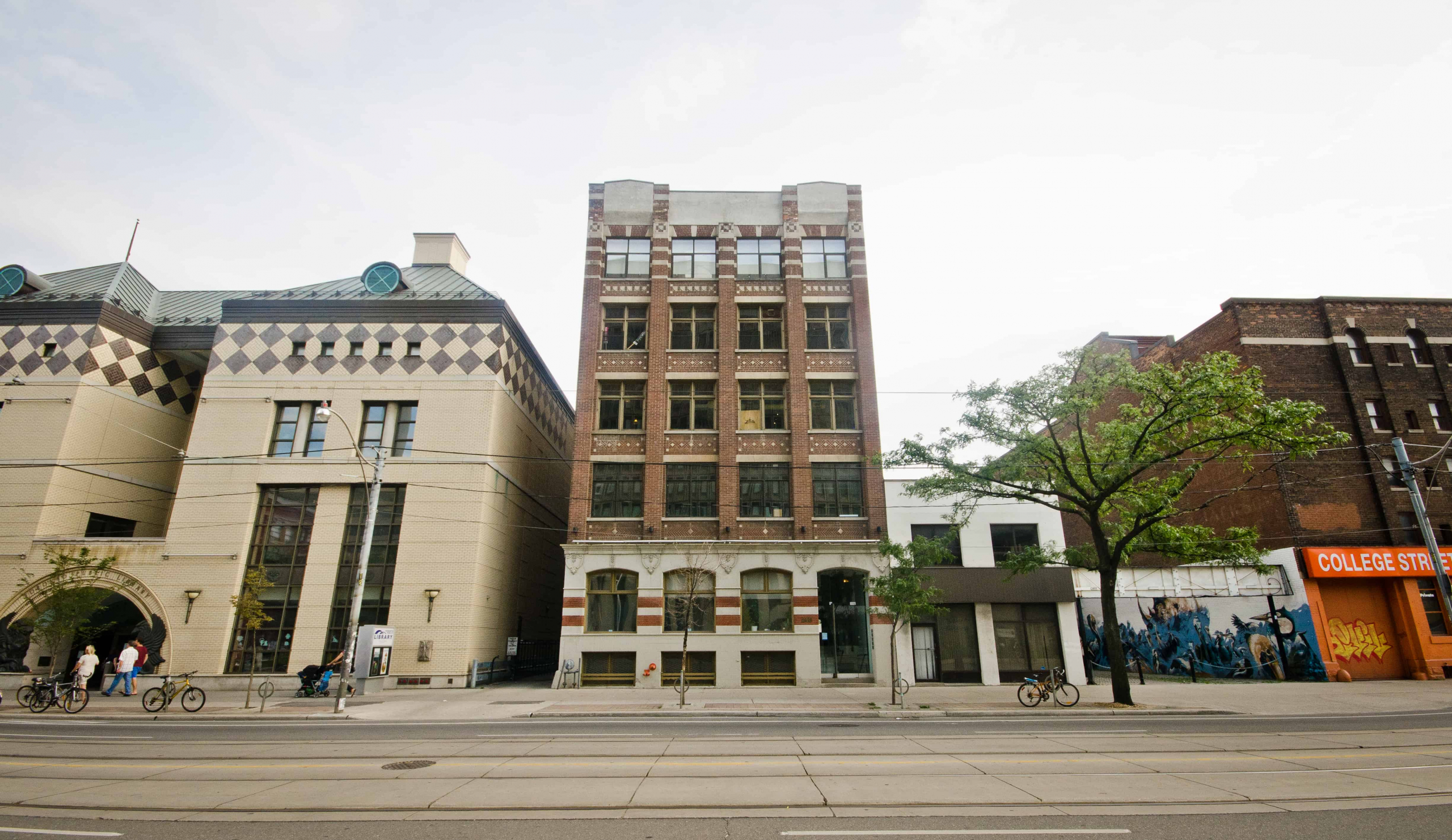Toronto City Council voted Friday to oppose the development of a privately-run residence for U of T students, to be located on College Street. The vote is yet another setback in the university’s efforts to meet burgeoning demand for housing spaces on its St. George campus.
City councillors, who declined to approve the zoning amendments necessary for construction on the project to begin, opted to dispatch city staff to speak against the project when it comes up for appeal at the Ontario Municipal Board in the fall.
Although the proposed residence would house U of T students, Toronto developer Knightstone Capital Management has been pursuing approval for the project at City Hall, as well as hosting the requisite community consultations on behalf of the university. The land on which the proposed residence would be built was leased to Knightstone by the university in 2010.
Knightstone initially proposed a 42-storey residence of glass and steel, later scaled back to 24 storeys after the degree of local opposition to the development became clear.
Ralph Daley, president of the Grange Community Association, said his main concern was that the residence was a poor fit for the surrounding neighbourhood.
“We’re in favour of students, we’re in favour of student residences; we are not in favour of this building,” said Daley. “It has to fit into the community.”
Although Daley, who spoke at the council meeting Friday, and other community leaders stress that their concern is limited to the Knightstone residence, U of T and its neighbours have been at odds over development beyond the university’s perimeter for several years. The Knightstone proposal appears to have brought these simmering tensions to the fore.
“We’re going to war,” threatened Rory (Gus) Sinclair, a board member of the Harbord Village Residents’ Association, to The Globe and Mail in June. “Co-operation is over.”
In a June op-ed in the Toronto Star, Daley and the letter’s co-authors allude to a history of conflict between U of T students and the communities surrounding campus. Last year, the Annex made headlines over a plan to license and regulate fraternity and sorority households in the neighbourhood, after repeated complaints about unruly student behaviour.
City Council considered the proposal late in session July 13. Following the unanimous approval of an amendment introduced by councilor Adam Vaughan, intended to close off a legal loophole concerning boarding houses, Council again voted unanimously to reject the Knightstone proposal as it stood, and instructed city staff to oppose it in the fall.
Vaughan, whose constituency includes a substantial portion of the St. George campus, has been a particularly vocal opponent of the Knightstone plan.
Vaughan expressed concern several times in the spring that the university has persistently “refused to divulge” information on the development. The university released its contract with Knightstone Capital in May, after initially withholding the document because of a non-disclosure clause that has since been mutually waived by Knightstone and U of T.
Relations worsened when the university, in a statement, charged that Vaughan had “uncharacteristically threatened to use his office to damage the University’s interests in various ways.” Vaughan denied these accusations in an interview with The Varsity on Friday.
“I’ve tried in the last six years to work well with the university,” said Vaughan, referring to his efforts to ease the development of university projects such as Rotman Central and the Mining Building. “But this is a terrible housing proposal. It’s warehousing of students in substandard housing.”
Vaughan has met with U of T president David Naylor twice in the last year, in an attempt to find an acceptable solution. Both the university and Vaughan expressed a desire to return to a more “positively collaborative” relationship.
The University of Toronto is not the only Canadian university looking at private sector solutions to its student residence problems. Trent University entered into an agreement in 2011 that would see Residence Development Corp., a private real-estate concern, own and operate a new student residence.
Under the terms of the lease the university stands to receive an annual fee of $350,000 for 99 years, adjusted for inflation. The money would be directed to Student Life programs and services.
But council’s opposition to the proposal leaves the university in a difficult position. Demand for affordable student housing has increased significantly in recent years as the student population on the St. George campus has continued to grow.
Currently just one in four St. George students can be accomodated in university housing. Internal university reports have suggested that the best solution to the housing crunch would be to construct high-density residence towers like the exisiting Chestnut Residence on Dundas Street. But with local residents riled up, and city council seemingly unwilling to approve the construction of any such towers, the way forward for the university remains unclear.


